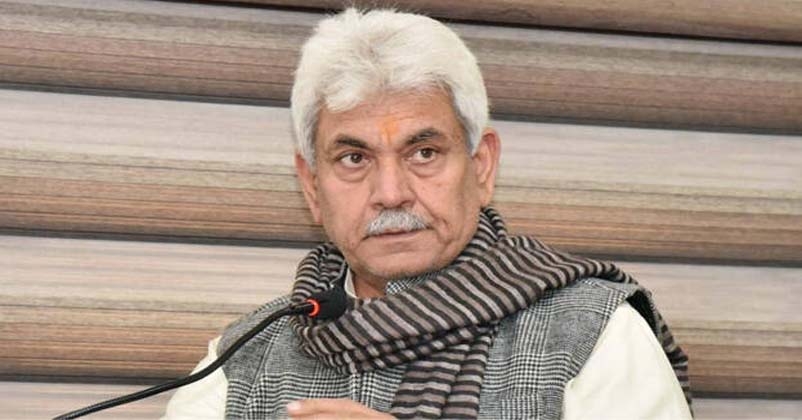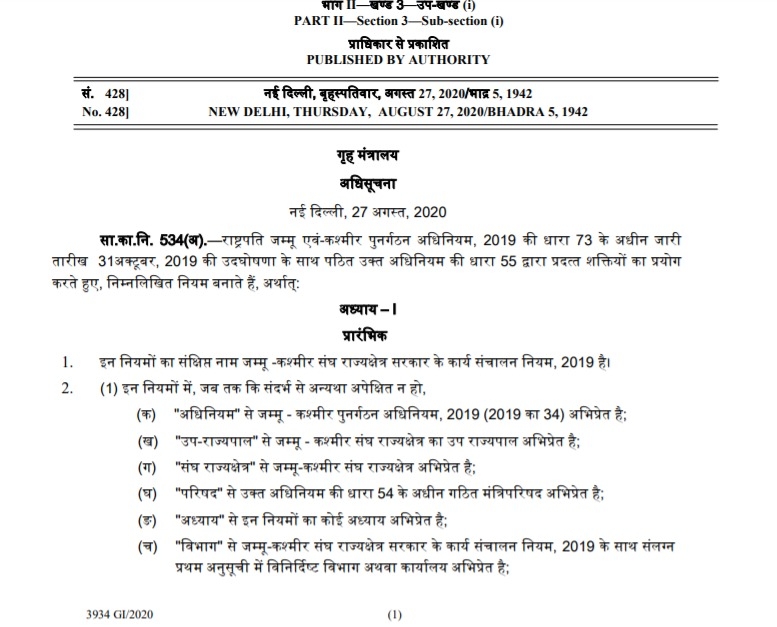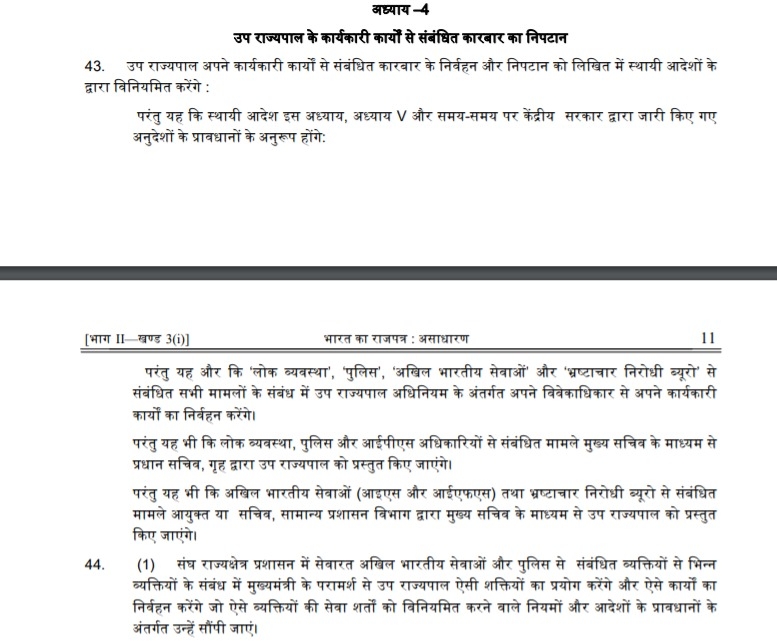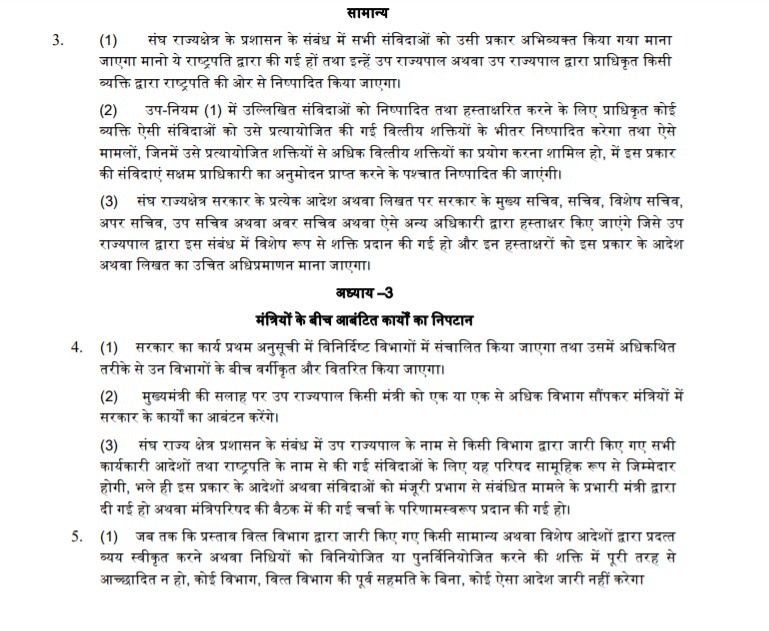LG to be far bigger than CM in J&K
| 29-Aug-2020 |

By Sant Kumar Sharma
Jammu, August 29:
Jammu, August 29:
The post of chief minister in erstwhile state of Jammu and Kashmir was one of the most powerful in the country. Due to a separate Constitution of the state, and powers bestowed by Article 35 A and 370 of the Indian Constitution, CM enjoyed powers nobody else similarly placed had. The extraordinary powers were snuffed out when the Centre introduced far-reaching changes on August 5, 2019.
Gone was the separate state flag, the separate Constitution, Article 35 A and 370 was restated. Several political leaders of Kashmir region were put behind bars, some with Public Safety Act (PSA) slapped against them. On October 31, 2019, two UTs of J&K and Ladakh came into being as the old state ceased to exist.
On Friday (August 28), the Union Ministry of Home Affairs (MHA) issued a notification delineating powers of the Lieutenant Governor and the CM of the UT. It is crystal clear that the LG will enjoy far wider powers than the elected CM under these newly notified rules. In other words, the Centre will now have a far better control of the UT through its nominee.
Police, All-India services and Anti Corruption Bureau (ACB) will be directly under the executive control of the LG henceforth, according to the notification issued by Union Home Secretary Ajay Bhalla. Incidents, these rules of business have been notified under the Jammu and Kashmir Reorganization Act, 2019.
In case a difference of opinion crops up between the LG and the council of ministers headed by CM, the issue will be referred to the Centre and decision of the President will prevail. This substantial reduction in powers of the CM and his ministry is clearly meant to convey a message to the politicians of various hues.



The message is loud and clear that as long as Modi government is ruling the Centre, the question of going back to pre-August 5, 2019, position just does not arise. Some days ago, Farooq Abdullah of the National Conference and five other parties had declared in Srinagar that they stood by August 4, 2019, Gupkar Declaration.
Referred to as Gupkar Declaration II, it had reiterated that these parties will work for restoration of status that prevailed on August 4, 2019. Incidentally, no leaders from Jammu or from Ladakh were present on this occasion in Srinagar. This indicated that the two regions were not consulted and no attempt was made by leaders of Kashmir-centric parties to reach out to them.
Referred to as Gupkar Declaration II, it had reiterated that these parties will work for restoration of status that prevailed on August 4, 2019. Incidentally, no leaders from Jammu or from Ladakh were present on this occasion in Srinagar. This indicated that the two regions were not consulted and no attempt was made by leaders of Kashmir-centric parties to reach out to them.
The elections to 90-member UT legislative assembly will be held only after fresh delimitation of constituencies. Only then will a new CM be chosen by these legislators and he/she will be able to constitute his council of ministers. The process of delimitation and elections is likely to take between 12 to 18 months.
It is perhaps time for various political parties of J&K to reconcile to the new realities and find working space for them. The alternative of trying confrontation with the Centre always exists and we may get to see Gupkar Declaration III in August next year.